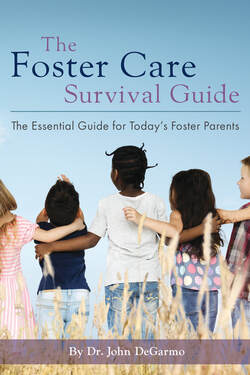
Now, documentation does not mean that you, as a foster parent, should record and report only those negative experiences while caring for a child in care. Indeed, positive events and occurrences should also be reported and documented. Document when he started eating healthier, behaving more positively, acted kinder. Note when negative behavior began to decrease, and how he attempts to handle difficult situations in a more positive way. Throughout the placement of your child from foster care in your house, it will be necessary for you as a foster parent to keep written records, a journal or some sort of documentation. This written account will help you keep an accurate account of the time your child from foster care lives in your home.
Quite likely, your child from child from foster care is going to come to your home behind on medical shots, and perhaps on several medications. In short, he is probably going to have to visit the doctor soon, and perhaps even often. If he becomes sick, include this in your written records: the time he was sick, as well as how it was treated, including doctor visits and any medicine that you gave him. Note the conversations between him and the doctor, and between you and the doctor. Indeed, try and document the conversations between not only a doctor and a child, but also between the child in your home and his caseworkers, therapists, teachers, birth parents, biological family members, teachers, law enforcement and other people and conversations you feel are important. If he is the typical child, he will probably fall down at some point while living with you and skin his knee, scrape his chin, have a bruise, or some other type of injury. It is important that you document when it happened, how it occurred, and how and what you did to treat it.
Join the thousands who receive Dr. DeGarmo’s FREE foster care newsletter. Simply fill out the form below.
You might also be wise to let your caseworker know about such injuries occurring in your home, as well in case a birth parent or family member should notice and ask at the next visitation. Again, no need to worry too much if and when this should happen to the child in your home. Children will play, fall and get scratched and cut. It most likely happened to you as a child, and will happen to the children living in your home. Simply make sure you document such events in full. If he should miss a day of school due to being sick, record this and how you treated it as well. Keep records of any doctor’s notes, too.
For many children in care, their emotional status and needs are ever changing, and at times, ever demanding. As a foster parent, it is important to document any changes in behavior the child in your home might exhibit, along with when he began behaving in this way, as well as how long the behavior lasted. Detail how you addressed this change in behavior, and how he reacted to any rules and consequences you put into place as a result of misbehavior. If he should lie, steal, argue, yell or throw the so-called temper tantrum, record these incidents and how you responded to them as well. Along with that, record how the child responded to any consequences or disciplinary methods you used. Keep a notebook specifically for his school work, including grades and report cards, any behavioral problems or discipline, and any conversations with teachers, school counselors, administrators and other school employees.
Visitations are an important factor in both the life of your child in foster care, as well as his biological family members. For your child, visitations may occur once or several times a week, every other week, once a month, or even more irregularly than that. Whatever schedule of visitation he might have, it is important that you record these important events. Keep an account of every time he has a visitation, including the date, times and locations of each visit. Record who was there to supervise and monitor the visitation. If he has significant emotional or behavioral changes before and/or after these visits, as is often the case and is also quite normal, do your best to describe these in full.
Any contact you have with the birth parents and biological family members should also be documented. You should also document each conversation you have with his caseworker. If he should display any serious conflicts or unusual behavior toward his biological family or caseworker, or even toward himself, document this in detail, as well as report it to the caseworker immediately. If you suspect any kind of abuse while visiting his family, take before and after pictures of him as another form of evidence. Indeed, if he should ever abuse himself in any way, at any time, and in any fashion, not only must you document this, but you also need to call your child’s caseworker immediately. With proper documentation and records, you will not only better protect yourself as a foster parent, but also the child. Furthermore, documentation helps to provide important information to case workers, courts and all advocates for children in foster care.
For much more, download The Foster Parent Documentation Book. The Foster Parent Documentation book has all documentation information, forms, and much more for your foster parenting needs. This downloadable book includes information that you need.
-What to document
-How to properly document
-How to properly record incidents and accidents
-Printable Contact Sheets
-Printable Medication Logs
-Printable Respite Family Information Sheets
-Printable Accident Report Logs
-Printable Doctor/Medical Visit Forms
-Printable Child Monthly Reports Forms
-Printable School Information Forms
-Printable Visitation Report Forms
-Printable Behavior Incident Report Forms
-Printable Yearly Training and Licensing Logs
-Full and detailed list of Foster Care acronyms
-Foster Care Contact Information for all state departments for the United States.
-Dr. John




 RSS Feed
RSS Feed